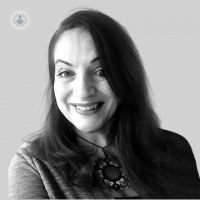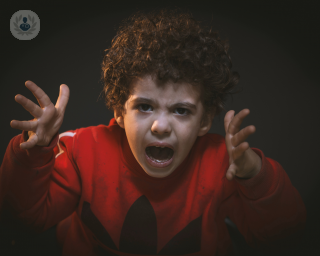Paediatric psychology
What is paediatric psychology?
Child psychology is the speciality concerned with the diagnosis, study and treatment of problems with the physical, motor, cognitive, perceptual, affective and social development of children. Some of the most common psychological disorders seen in clinics are related to fears, sleep disturbances, behavioural changes and eating disorders.

What does it involve?
The psychologist analyses the child over several sessions by observing their behaviour and talking with them in order to establish a diagnosis of their possible problems or disorders. An appropriate treatment is then offered for their particular case. In addition, all variables affecting the child’s development are analysed, including social and environmental influences, as well as genetic factors. Normally, in order to achieve the best outcome, the psychotherapeutic process involves the child’s parents and teachers.
How do we know when to seek professional help?
These are some signs that the child requires professional therapy:
- Regression: when the child reverts to behaviours that in theory, they had surpassed; this is a defence mechanism, given that the child regresses to a period in which they felt safe and protected. Such behaviours include using a dummy, a feeding bottle or wearing nappies.
- Aggressiveness and hostility: the child’s reaction to an overwhelming situation may be characterised by violence and hostility for no apparent reason.
- Anxiety and attention problems: sometimes the child may present concentration problems and hyperactivity that require evaluation by a specialist.
- An inexplicable change in behaviour: a sudden change in behaviour, such as an outgoing child becoming withdrawn, is another warning sign.
- Physical problems: another possible sign is feigning illness to avoid going to school or to avoid responsibilities; this is a psychological mechanism to avoid specific situations.






